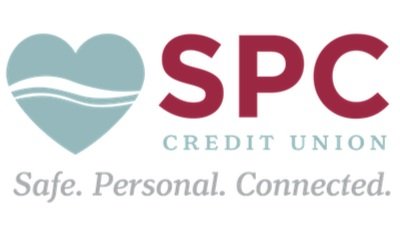So, you want to know about Share Certificates...
You’ve probably heard of CDs (the financial kind, not the preferred listening method of 90s kids), and you *might* even have a decent understanding of what they are...but then Credit Unions had to go and throw Share Certificates in the mix. Confused? We don’t blame you. Here’s what you need to know to about Share Certificates, so you can make plans to make money.
Remind me...what’s a CD? A CD, or Certificate of Deposit, is a type of short-term savings account that’s deposited at a financial institution for a predetermined period of time at a specified interest rate.
In that case...what’s a Share Certificate? Share Certificates are, for all intents & purposes, the Credit Union equivalent of CDs—available to Credit Union Members. Just like the FDIC insures CDs with banks, the NCUSIF (National Credit Union Share Certificate Fund, which is also backed by the federal government) insures Share Certificates and other funds deposited with Credit Unions, up to $250,000. The other main difference between CDs and Share Certificates is that CDs earn interest, while Share Certificates earn dividends—again, same idea, different term.
Tell me more...Terms & conditions, if you will.
Share Certificate terms can range from 6-48 months at SPC, often with the option to extend for another term upon maturity (aka, when time’s up). While your deposited money is kept in a CD account, it earns dividends. How much, you ask? That depends on the APY, or Annual Percentage Yield. Hint, hint: the higher the APY, the bigger your balance is at the end of your term.
Most of the time, share certificates require a minimum deposit. You can generally expect $1,000, though if you’re lucky, you might catch share certificate specials with a lower minimum deposit threshold. Parenting pro-tip: Youth can also often nab a lower minimum deposit on share certificates.
APY vs. Dividend Rates: Take a look at a rates table, and you’ll probably see both dividend rates and APY (Annual Percentage Yield). Here’s the difference: dividends are calculated monthly, while APY is the projected amount (as a percentage) your money will accrue over a year, as dividends stack on top of dividends. (This is called compounding). You’ll notice APY is higher than Dividend Rates, because APY represents the result of compounding dividends.
What’s the catch? If you’re afraid of long-term commitment, short-term Share Certificates are probably a safe option for you. Unlike other investment accounts, you can choose to keep your money in a Share Certificate for as few as 6 months. Make sure you won’t need that money in the meantime, though. Generally, there are fees associated with withdrawing your money from a Share Certificate account before its maturity.
Where do I sign up? We thought you’d never ask. Visit us online at spccu.org; drop in one of our branches in Hartsville, Darlington, Florence, or Bennettsville (Cheraw, we’ll see you soon!!); or call us at 843-332-4506 to make a plan to make money by opening a share certificate with SPC Credit Union.
